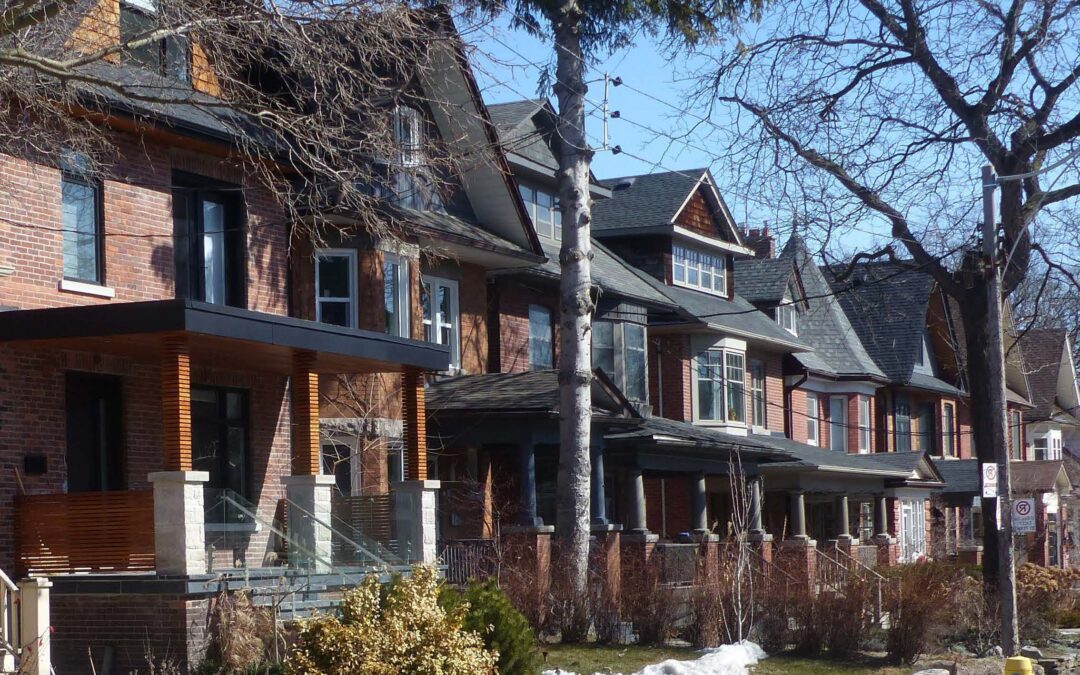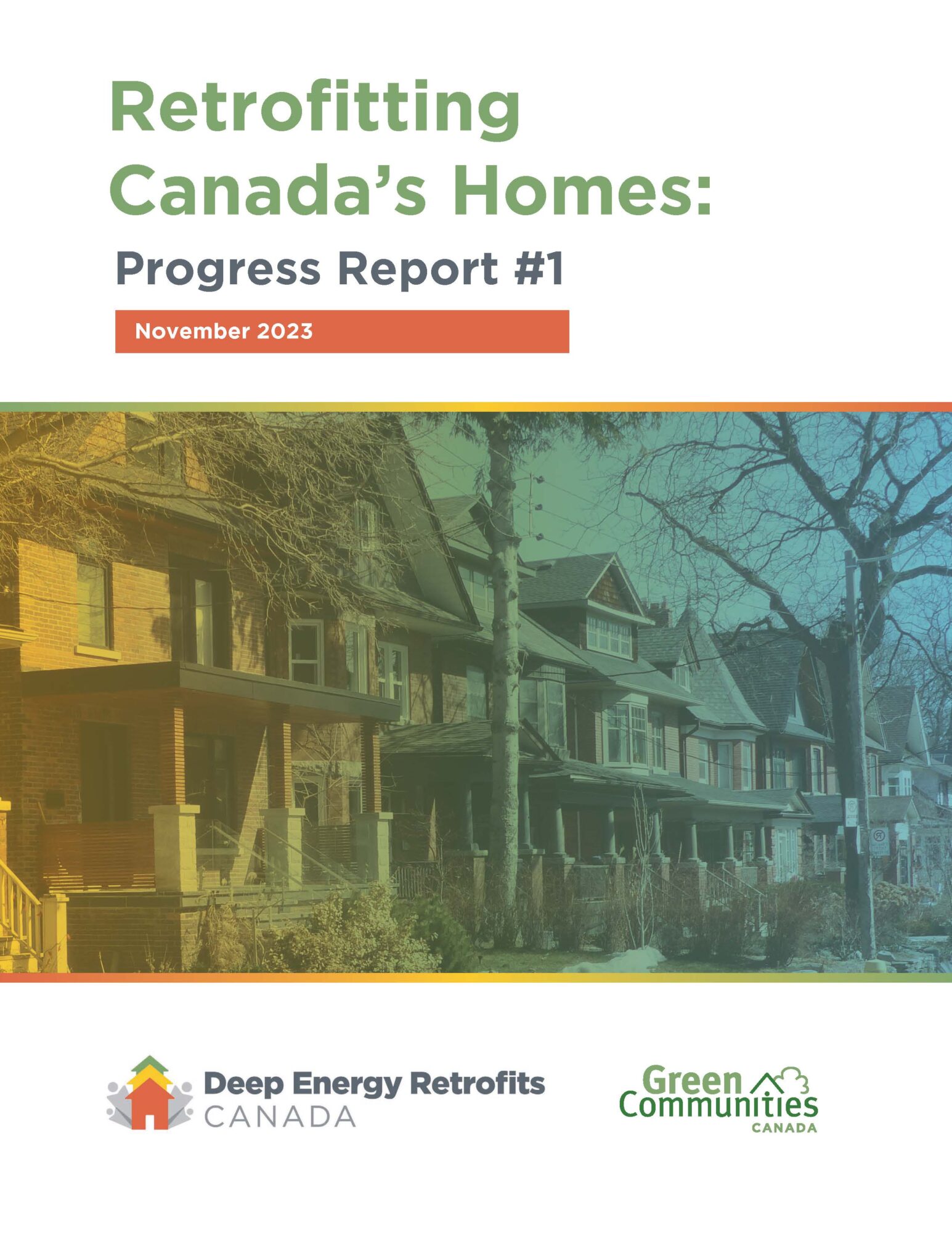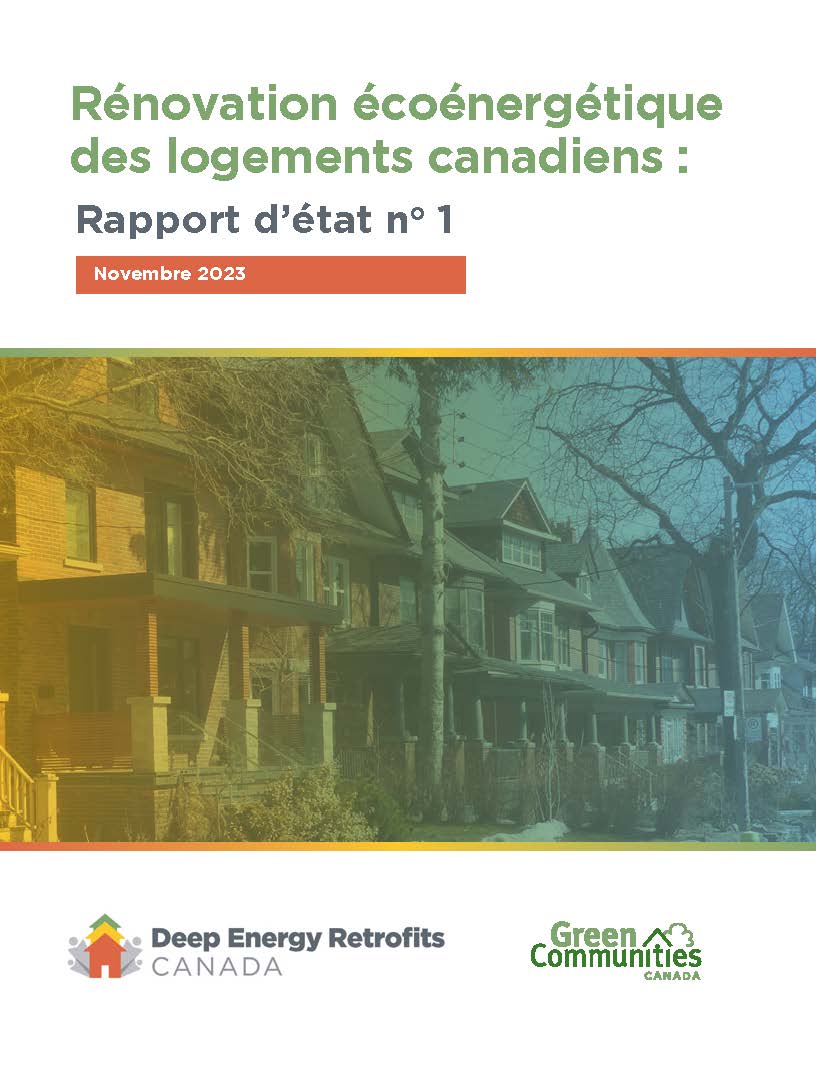Peterborough, On, 8 November 2023: Green Communities Canada has completed an in-depth review of federal data on reducing greenhouse gas (GHG) emissions in Canada’s low-rise housing sector and makes recommendations for improving the effectiveness of the Canada Greener Home Grant incentive program.
A new report published by Green Communities Canada analyzed data from over 188,000 building retrofits documented with the EnerGuide rating system across Canada in 2020, 2021 and 2022.
“The data shows the number of home retrofit projects has increased nearly fourfold since the launch of the Canada Greener Home Grant, but the average energy savings are modest at just 21 per cent.” says Kai Millyard, Green Communities Canada’s EnerGuide service organization manager who led the data analysis. “This will result in the need to spend billions more on rapid electrical utility expansion to meet our climate goals as electricity replaces fossil fuels.”
Retrofitting Canada’s Homes: Progress Report #1 recommends accelerating deep energy retrofits — renovations that result in over 50 per cent energy savings — as the key to achieving the country’s GHG emission goals while minimizing the societal costs associated with the energy transition.
“Over 8,000 homeowners have shown that much deeper savings are possible in all parts of the country” says Millyard, “but these are just one in 16 retrofits now – the incentives are too small for widespread deep retrofitting.”
“The retrofit industry describes a three-step strategy to retrofit and decarbonize housing.” says Jared Kolb, Green Communities Canada Executive Director. “The first step in any home retrofit project should be to improve the thermal efficiency of houses to reduce energy consumption, followed by the electrification of equipment, including introducing heat pumps and electric water heaters. As the last step, houses can add renewable energy systems like solar panels to create local energy generation capacity.”
The report makes recommendations for Natural Resources Canada and others to accelerate deep energy retrofits and help Canada meet its GHG emission goals.
Recommendation 1: To ensure Greener Homes is aligned with the goal of net-zero by 2050, adopt deep retrofits as the program’s objective, and redesign incentives accordingly.
Recommendation 2: To ensure Greener Homes enables the market to achieve net-zero by 2050, revise program messaging to emphasize deep retrofits, and a complete retrofit plan (envelope, mechanicals, renewables) rather than piecemeal measures.
Recommendation 3a: To ensure Canada can achieve net-zero by 2050, significantly increase the maximum Greener Homes grant amount available to homeowners in recognition of the higher costs of renovations, and to provide an adequate incentive to undertake the necessary upgrades to realize deep retrofit levels of savings. Similar programs in Ireland and Germany offer homeowners grants of more than $50,000.
Recommendation 3b: To encourage deeper energy savings, include a performance-pay grant scaled to the level of energy savings produced.
Recommendation 3c: To increase the success of achieving deep energy retrofits, cover the cost of homeowners accessing expert help to complete their retrofits.
Recommendation 4: To increase the support for homeowners ultimately achieving deep energy retrofits, we recommend EnerGuide Service Organizations provide their energy advisors with increased training.
Recommendation 5: To avoid increasing fossil fuel use in new construction and accelerate the transition to heat pumps, provincial governments must phase out fossil fuel equipment in new construction as soon as possible.
Fast facts from the report:
- Greenhouse gas emissions from the low-rise housing sector are declining. They are down 6.1% from 2005 to 2019.
- The Canada Greener Homes program has quadrupled the rate of participation after its introduction in 2021.
- Three steps are needed to decarbonize houses: efficiency improvements, electrification, and adding renewable supply.
- Canada Greener Homes has been successful at increasing electrification and solar among participants, but improving building efficiency is declining within the program.
- Similar programs in Ireland and Germany offer incentives roughly ten times the offer from Canada Greener Homes.
Want to find out more about deep energy retrofitting?
We have resources to help you understand more about deep energy retrofits and how they can help save energy and reduce greenhouse gas emissions.



Recent Comments